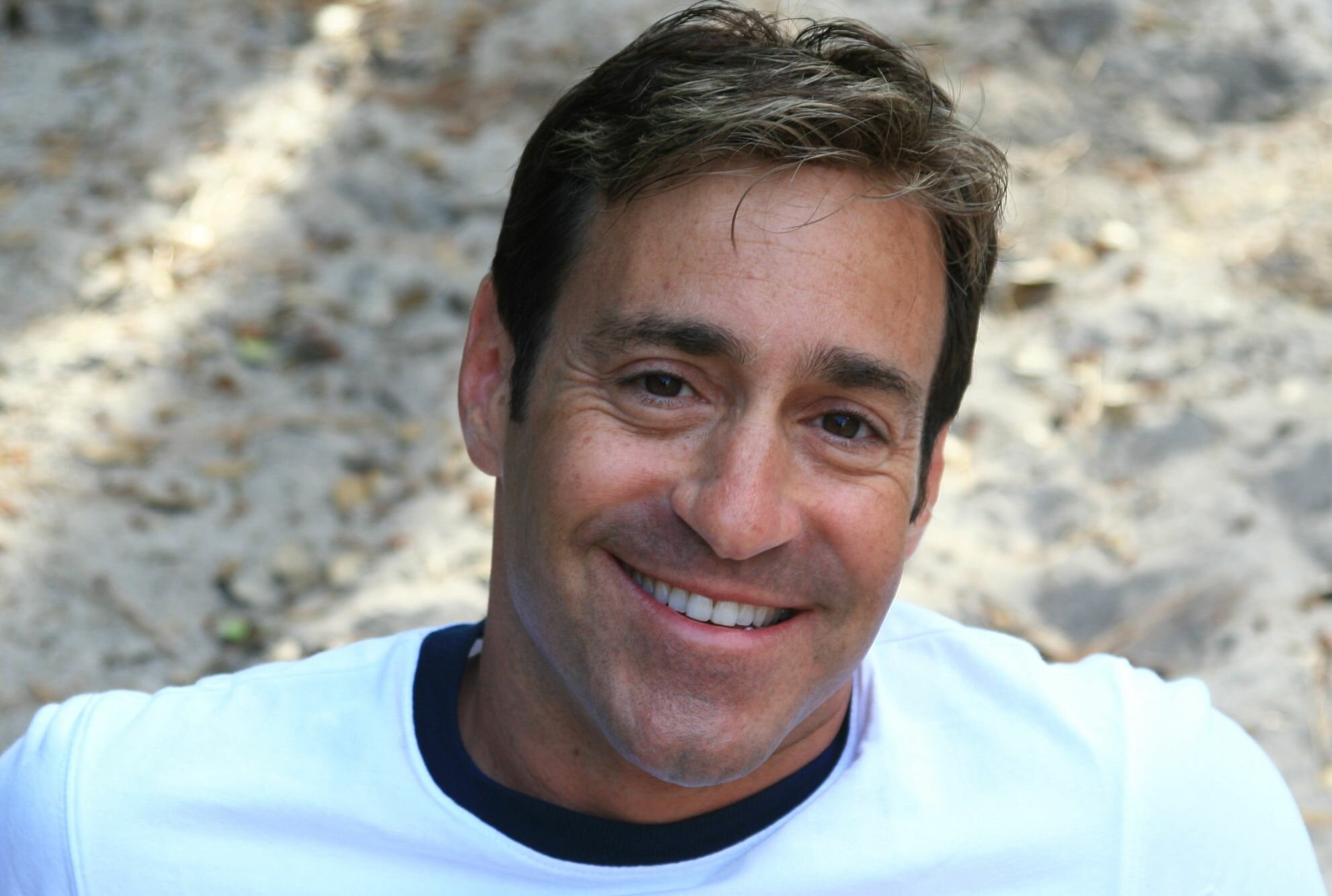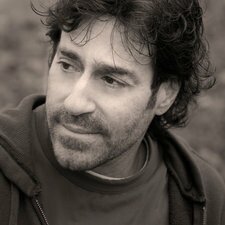In honor of World AIDS Day, we’re sharing one of our favorite Hooksexup conversations with AIDS advocate Scott Fried, where we discussed what it’s like to live, date, and educate as an HIV-positive man.

In 1987, Scott Fried was an actor, hanging around a production of the musical Walk on the Wild Side and hoping for the union card that would allow him the possibility of a place in the show. He met a stage carpenter and the two had a fling. The man knew he was HIV positive at the time, the actor/singer says he later learned, but didn’t tell Fried. Sadly, like many gay men of that era, Fried was infected with the virus. Five years later, he started speaking about sexual health and HIV/AIDS at universities, churches, synagogues, and schools. Against all odds, he has made it to his 50s and has now spoken at more than 100 institutions.
Since you started giving lectures, how have perceptions of HIV-positive people changed among your audiences?
From 1992 until about 1999, it was always a big shock when I revealed my HIV status. Halfway through the lecture, I would reveal that I myself have HIV. In 2014, [after] 26 years of living with HIV — and 21 years of speaking about HIV — it really doesn’t have the same charge, for a number of reasons. Teenagers today aren’t being taught about HIV and AIDS so the words don’t have the same impact. Also, there are a lot of teenagers and adults alike who see HIV and AIDS as a manageable disease. It’s not as scary as it used to be. Whether that is true or not is up for debate. I think a third reason is maybe they do know people who have HIV. People are around longer than they were back in the day, when it was new.
So when the lecture began it wasn’t preannounced that you were positive?
Even today, I don’t announce it until I get there. In fact, when a school or university or whatever is introducing me, I always ask, in a very humble way, “Can I look at the introduction? I want to see how you are introducing me,” and if they say, “Scott Fried was been living with HIV for so many years…” I always ask them to remove that because it’s my money shot! I don’t want them to take away the money shot!
In the ’90s, why were people so surprised? Did they think someone with HIV would be in a wheelchair?
They thought it was a death sentence! And yet here I was, healthy, young, in a tight white t-shirt with pecs, without [Kaposi’s sarcoma] lesions, without a patch over my eye from CMV retinitis, without a cane because of some wasting syndrome related to HIV, without the usual symptoms, and they were shocked. They got to like me; I’m likable, I’m articulate, and I’m approachable, and a half an hour in, they find out — oh, my God! — I’m also HIV-positive. The thought that this guy, who they may have become a little bit fond of in a short amount of time, might die from it made them lean forward a little bit. Today, we are aware that if you adhere to your meds, if you adhere to your protocol, if you take care of yourself, it’s not a death sentence. It’s not the crisis it was, at least not in our country.
So what happens in that first half hour before you reveal your status?
Well, I start with a story, start with a way I can relate to them. If I am in a room full of middle-schoolers, I talk about what it was like for me when I was in seventh grade. If I am in a high school, I talk about what it was like for me in high school. If I am at a university, and so on. I need to level with them, and from that place, I bring in the moment of the encounter in which I became infected in 1987, the first time I had unsafe sex with a man. I talk about him handing me his phone number, about calling his phone, about going up to his apartment, about the jeans I was wearing, about the music that was playing, about the condom wrapper I didn’t hear — I want to led up to that — and then I tell them that I got infected, so they know who I am. It’s effective for drama, if that makes sense.
After you speak, teenagers often send you emails and you’ve published a book of those messages. What kind of things do they tell you?
Here’s an example of a letter I received recently from a teenaged girl. I think she’s 17. She recently lost her virginity to her boyfriend, who she says she loves. They were prepared. They used a condom, but she didn’t get her period. She emailed me because she was afraid she got pregnant even using the condom. That is an example of these letters of fear. She said, “I can’t tell my mother; she doesn’t know I am having sex. I can’t tell my father. He doesn’t even know I have a boyfriend, so I guess I will tell you because I heard you speak last week at my synagogue.”
Other letters, teenagers tell me about the times they’ve been raped, molested, cut their skin in places their parents won’t see. Many teenagers engage in self harm; it’s an epidemic. Teenagers email me about their coming out experiences. I am sometimes the first person they tell that they are gay. It’s a lot easier writing an email and hitting “send” than saying what you got to say. Rarely, the letter is about HIV or AIDS. They tell about drug use or abuse, their parents getting a divorce, just waiting for the phone to ring, or vibrate in their pockets. It’s everything from “My parents are getting a divorce and I don’t believe in love” to “Why won’t he call me?”
 Do you look for resources for these kids? It seems like a lot of responsibility to get those kinds of emails.
Do you look for resources for these kids? It seems like a lot of responsibility to get those kinds of emails.
It’s a part of the job. I don’t believe in giving counseling through the internet. I don’t think that’s effective. I will give them the advice to go through whoever hired me — the teacher, the rabbi, the school counselor, whoever that may be… I think most of the time the thing they want is not answers, but the need to be acknowledged, the need to be discovered, to be cherished. I think they want someone to respond with the words, “I hear you. I read you. I get you. Thank you for sharing your secrets with me.”
Are there still places in the U.S. where an HIV-positive, openly gay motivational speaker can’t get a gig talking to young people?
There are schools that won’t have me. I have never spoken in Alabama. I have never spoken in Arizona. I have never spoken in Montana. I do work in a lot of other places. There are some demographics that don’t invite me.
You have criticized the way we talk to kids about sex in the U.S. Are there some countries or places within the U.S. that do it better?
Judging only from what I see, in Canada, there is a lot more HIV education and sex education. I have spoken in Montreal. They are willing to ask me, “What more can we do? What are we not telling students that would help them learn?” There are [other] places where there is an egregious lack of sexual education. In Israel, there is no such thing as health class. So when I go to Israel to teach, I’m it. When I go to Honduras, I am also it, the only AIDS educator. I give out condoms. Nobody is stopping me. Teenagers take them. When I went to England a few weeks ago, I was at a conference of 2,800 people and I was the only one there talking about AIDS. I think it’s a problem in a lot of places. I can’t give you the answer to what country is doing best, but at a lot of countries I visit, there is a lack of AIDS education.
In your own treatment, you were only taking vitamins for many years. Why that approach and what changed?
I didn’t want to go down the route of pharmaceuticals because I saw many of my friends die, not because of the pharmaceuticals, but I thought the pharmaceuticals were making things worse. If you saw the movie Dallas Buyers Club, that’s what that movie is about, in addition to a lot of other things. I had heard about the Dallas Buyers Club; I witnessed that happening as it was happening. I knew the alternative route was the way I wanted to go. I was taking about 100 pills a day, 33 in the morning, 33 at dinner and the rest at bedtime, and they were keeping my immune system working at a high level. But in addition to taking those vitamins and herbs, I would go to a nutritionist and a pharmacist and my regular internist, and I would look at my complete blood count, called a CBC, and I would, with my team, look at the numbers, and adjust the vitamins and supplements I was taking to make sure the numbers were always in the right range. It was more than a full-time job.
In my 18th year, my viral load skyrocketed to 181,000 copies. My T cell count dropped to 200 less copies. My doctor had agreed to go with me on my holistic journey, but asked, “At what point, am I going to convince you to take meds?” I told him when my viral load goes above 100,000 and my T cell count drops below 300. One day, I went in and that was the case. I felt it. I was sick. I lost 14 pounds in a week. The vitamins were no longer effective. HIV got aggressive and I needed something else. By that point, 2006, the pharmaceutical cocktail was much better than it was in 1987, so I held out my hand, got a prescription, and have been on meds ever since.
When you were first diagnosed, were you expecting to die and was there a time when that expectation changed?
I was given three years until the HIV would develop into clinical AIDS. We don’t say “full blown;” that’s a misnomer. That would imply there is something like “half blown AIDS.” That’s not true. There’s HIV and AIDS. But I was given five years to live, three years that would be good and two years in which I would suffer, struggle, and then die. That would put me at 29. It just didn’t go that way. It’s been 26 years that I have been living asymptomatic with HIV and I have never developed clinical AIDS.
And you chalk it up to vitamins?
I chalk it up to a lot of things. I chalk it up to the aggressive way I was proactive with my healthcare, with my nutritionist, my pharmacist, my internist, my HIV doctor, my therapist, my support group, different people and groups who were part of the team that I give credit to keeping me healthy. There’s that. And there’s also prayer, and a healthy life and a good attitude. The most important thing in why I am alive today, and it’s a four-letter word: luck. I just got lucky.
Is it difficult to date as an HIV-positive man?
Yes, and I don’t believe HIV-positive people who say it’s not. Nine out of ten times I get rejected. They are not rejecting me; they are rejecting the virus. My hope is that when a gay man rejects the virus, they are rejecting it from an educated point of view. What I am discovering is that many men aren’t educated. They don’t know how they [could] get infected. They don’t know how to protect themselves. They don’t understand this new world of HIV which is about the undetectability of the virus, viral load, compliancy to medication, so they are not asking the appropriate, educated questions.
When I say I have HIV, it’s generally a deal-breaker. What I hope is that it becomes an opportunity for a conversation that goes like this: I say, “I have HIV.” They say, “I’m sorry to hear that. Thanks for telling me. Are you undetectable? Are you on your meds? When’s the last time you saw a doctor? Do you use condoms? When can I see you again?” It doesn’t go that way, and the reason is that we are not only not educating our teenagers; we are also not educating our adults … I want to be clear here. I am not a victim. I don’t feel like a victim. When someone rejects me because of HIV, that is their right. I don’t take it personally. The question is: Are they having unprotected sex with anyone? Someone who might have it but didn’t tell them?
Does this story have a happy ending? Have you had a long-term relationship since you were diagnosed?
I have had two long-term relationships. I had a beautiful relationship, five years ago, with a beautiful, beautiful guy, and I have been single for five years. Of course, there is a happy ending: I am a healthy, happy, hot guy, and that equals happy ending.





